Pathways Japan (PJ) holds a Reunion Day every March to bring together students with refugee backgrounds who have been admitted into Japan to reflect on their lives, buildnetwork with other students and people from various parts of society, and think further about their careers. This year, we held two events: “JEPN Student Reunion Day” for students from Ukraine, Syria, and Japan, and “Syria-Afghanistan Student Reunion Day” for Syrian and Afghan students who are enrolled in or graduated from Japanese language schools. This report introduces the “JEPN Student Reunion Day.
This Reunion Day was organized by the Japan Education Pathways Network (JEPN), an organization of 23 universities and foundations, and was held at Sophia University. Sixty-one Ukrainian students and eight Syrian students gathered, as well as eight Japanese students involved in admitting these students. The first half of the event was “Career Talk” in which speakers from companies discussed their careers, and the second half was a workshop on “making friends in Japan,” which is always cited by students as a major challenge in their student life in Japan.
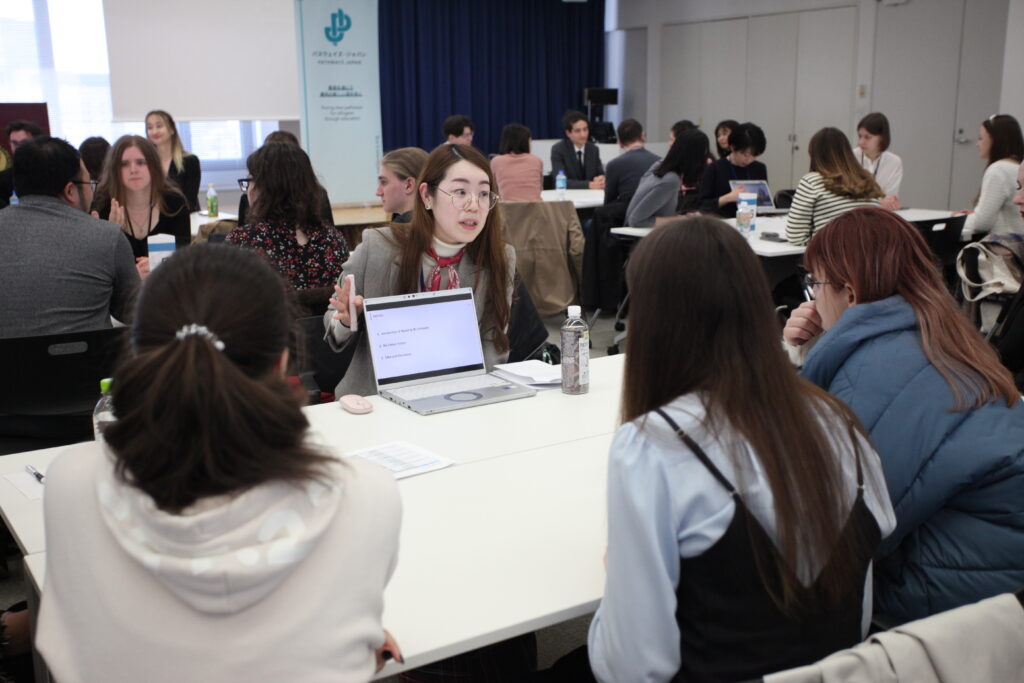
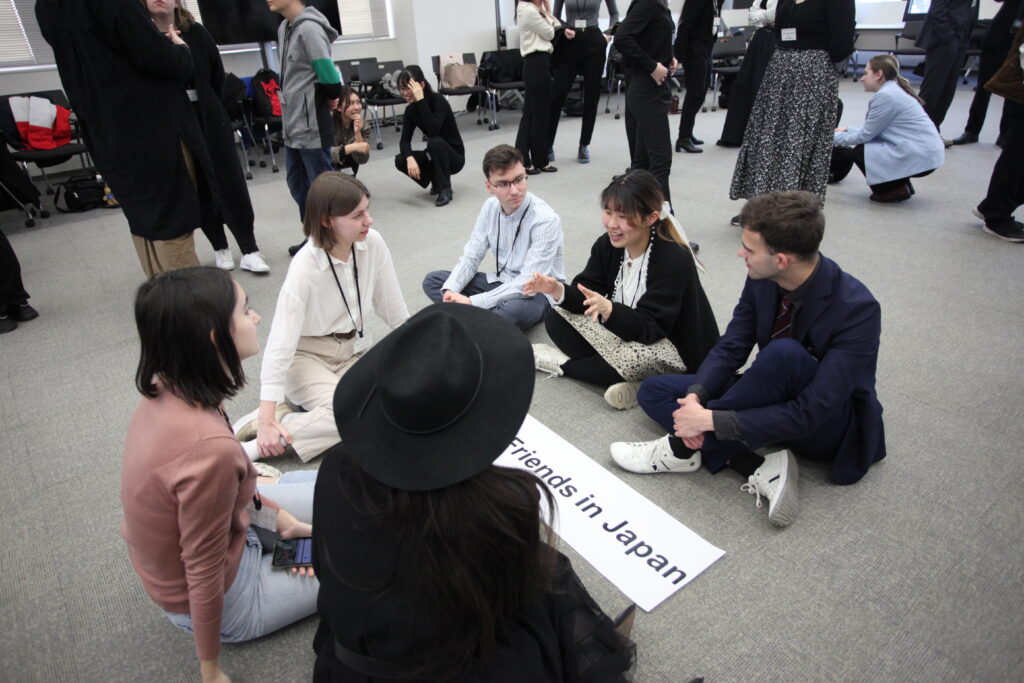
In the “Career Talk” session held in the first half, 14 people from 8 companies and the Career Center of Sophia University participated in a group work session to talk about recruiting activities, human resource development efforts, and individual career development to date. In addition, a representative from the Career Center at Sophia University spoke about the characteristics of job hunting in Japan for students who have not yet thought about their careers in detail.
<Participating companies and organizations> Airbnb, SAP Japan, Suntory, Shiseido, Sophia University, Bloomberg, and 3 individuals
Students had already deepened their understanding of job hunting in Japan to some extent through the “ Job Hunting Fair” held by PJ, the Job Hunting Mentorship organized with Bloomberg, and the exchange events and information sessions with individual companies, but in this session, students had the opportunity to meet with people from companies actually working in the field, with about 5 people per group. In a friendly atmosphere, many more specific questions were asked, such as what companies place importance on when hiring, what skills such as Japanese language level and experience are required, and career paths after joining a company. Some of the participating company representatives had experience changing jobs or were working for Japanese companies as non-Japanese employees, and the discussion also focused on long-term career prospects after employment, such as personal career development and adaptation to working style and corporate culture at a Japanese company. The participating companies gave supportive comments for students seeking employment in Japan, such as “By involving in the program, I was surprised to find that many of them are extremely talented,” “They actively asked questions, and I thought they had many things in common with Japanese students,” and “I would like to continue to support the students in some way so that they can be successful in finding a place to take an active role in Japan.”
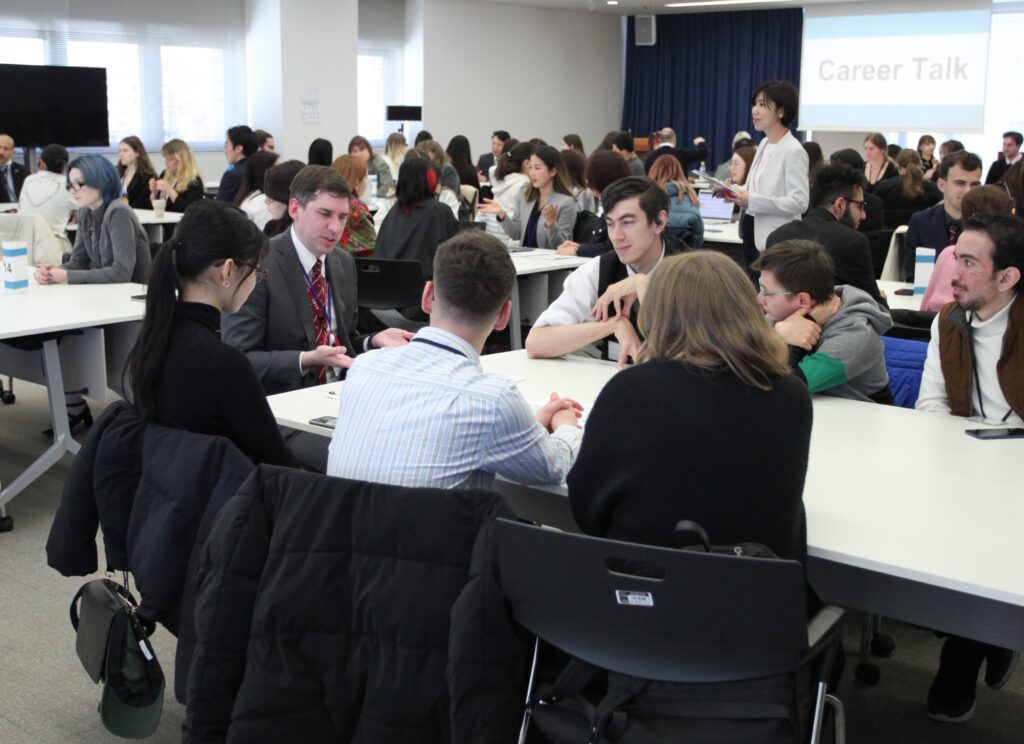
In the workshop held in the later half, we had a professional coaching staff as a pro bono support to consider the issue of “making friends in Japan,” which is one of the challenges many students face in their lives in Japan. After a warm-up game, all participants sat in a circle and placed a piece of paper with the theme written on it in the center of the room. The participants then shared their thoughts in a “constellation” style workshop, in which students changed their positions by the level of satisfaction for the question like “Are you satisfied with making friends in Japan?”
The participants expressed their opinions from various perspectives, including those who thought they needed friends and those who thought they did not need friends so much, and several students shared the point that making friends with same country and other international students is relatively easy, while making friends with Japanese people, even if they become fluent in Japanese, is a relatively long process due to the difference in ways of thinking and customs. Fundamental questions were also raised, such as whether people from other countries can really make friends with Japanese students in a highly homogeneous Japanese society, and whether it is difficult to do so unless the student/individual has had international experience. It was also suggested that to make friends with Japanese people who need relatively long process to get along well, students should start by putting themselves in places where they can continuously interact with Japanese people, such as in clubs, “going out” opportunities, part-time jobs, etc.
The facilitator in charge of the workshop pointed out joys, frustrations and pains of making friends were shared during the workshop, and sent the message, “You are never alone on this journey”.

At the end of the day, a reception event was held to which we invited guests from companies, government agencies, support groups, universities, Japanese language schools, and other organizations that support the Pathways Program. About 130 people, including students, gathered at the venue for networking among the guests and students.
In the latter half of the reception, the student who graduated from the Japanese language school and will be entering a vocational school in March, and the student who is working on job hunting at the university, gave updates on their recent activities. In addition, four Ukrainian students and one Syrian student, who had just arrived in Japan on March 16 through the University Pathways Program, gave speeches in Japanese about their aspirations for the future. At the end of the event, two Ukrainian students gave a live acoustic performance and sang two Ukrainian songs with the students in the audience.
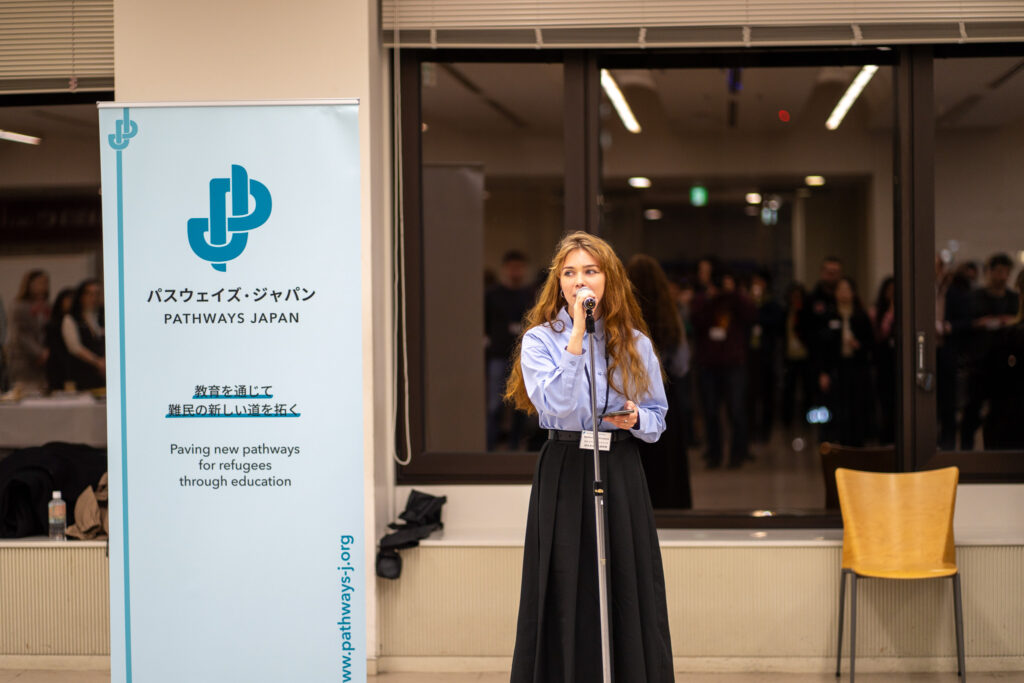
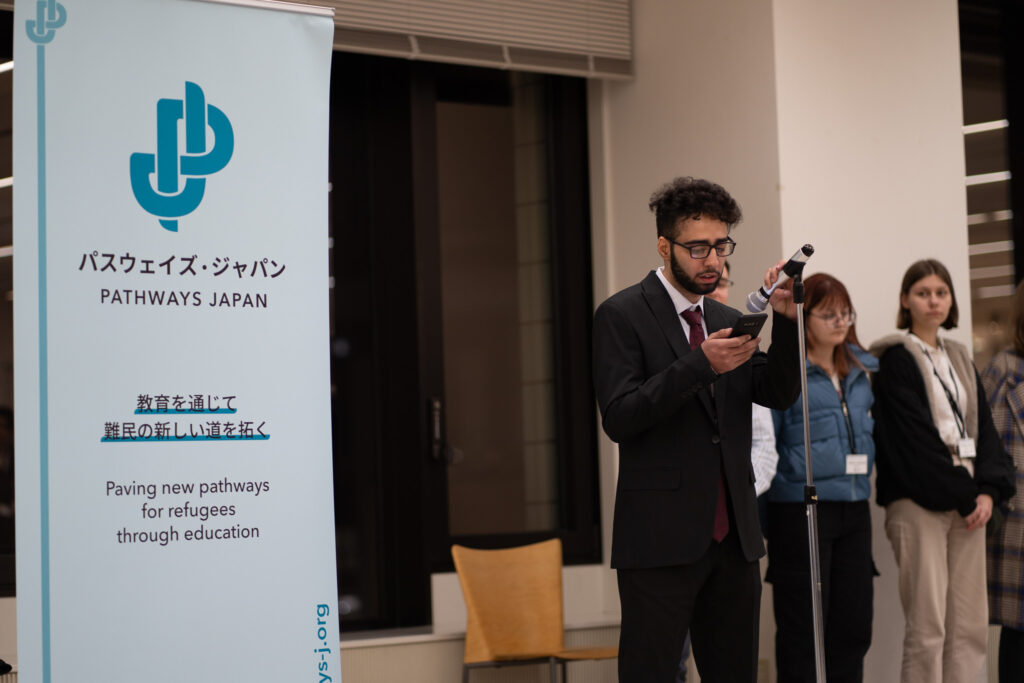
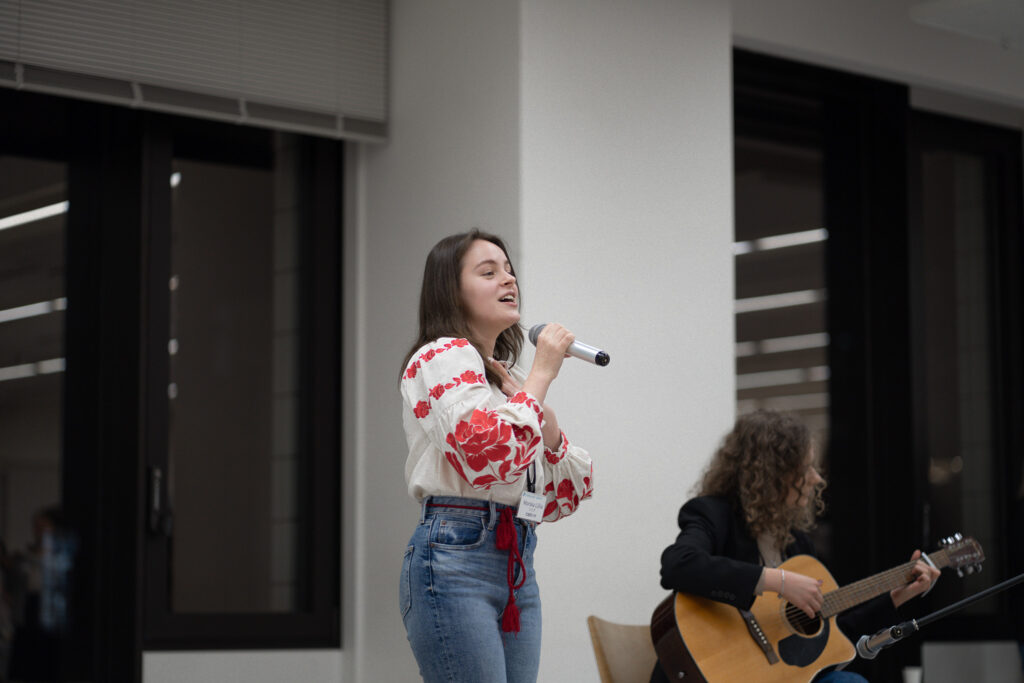
This is the third year that many Ukrainian students have lived in Japan, and an increasing number of them are moving on to their next career paths. Many students are aiming to find employment in Japan, and Pathways Japan will continue to support students in realizing their desired career paths in Japan by utilizing the Japanese language and other skills and experience they have cultivated so far.
Workshop photos ©︎PJ/JICUF Koto Miura
Reception photos ©︎PJ/JICUF/Naoki Beppu
